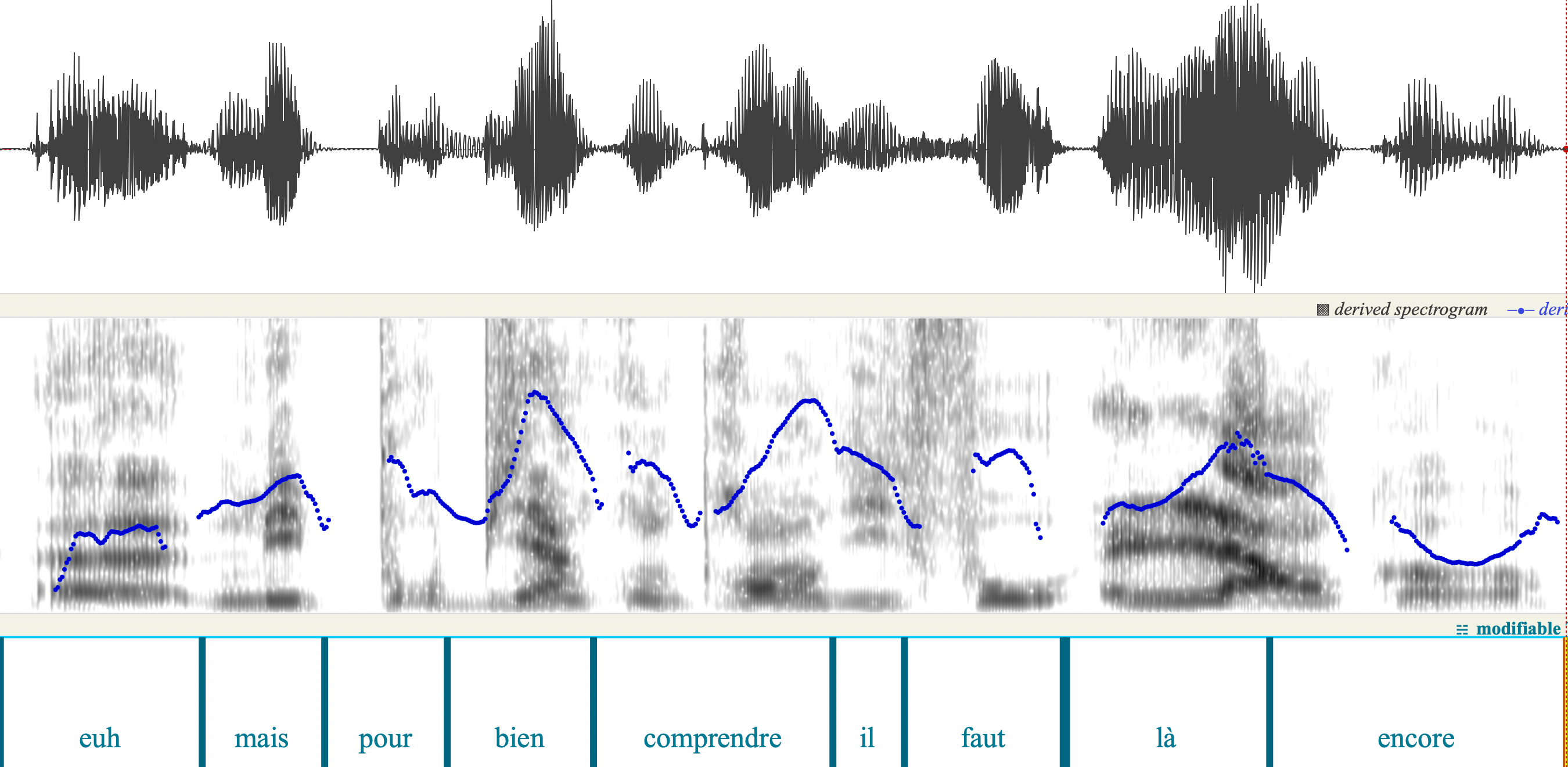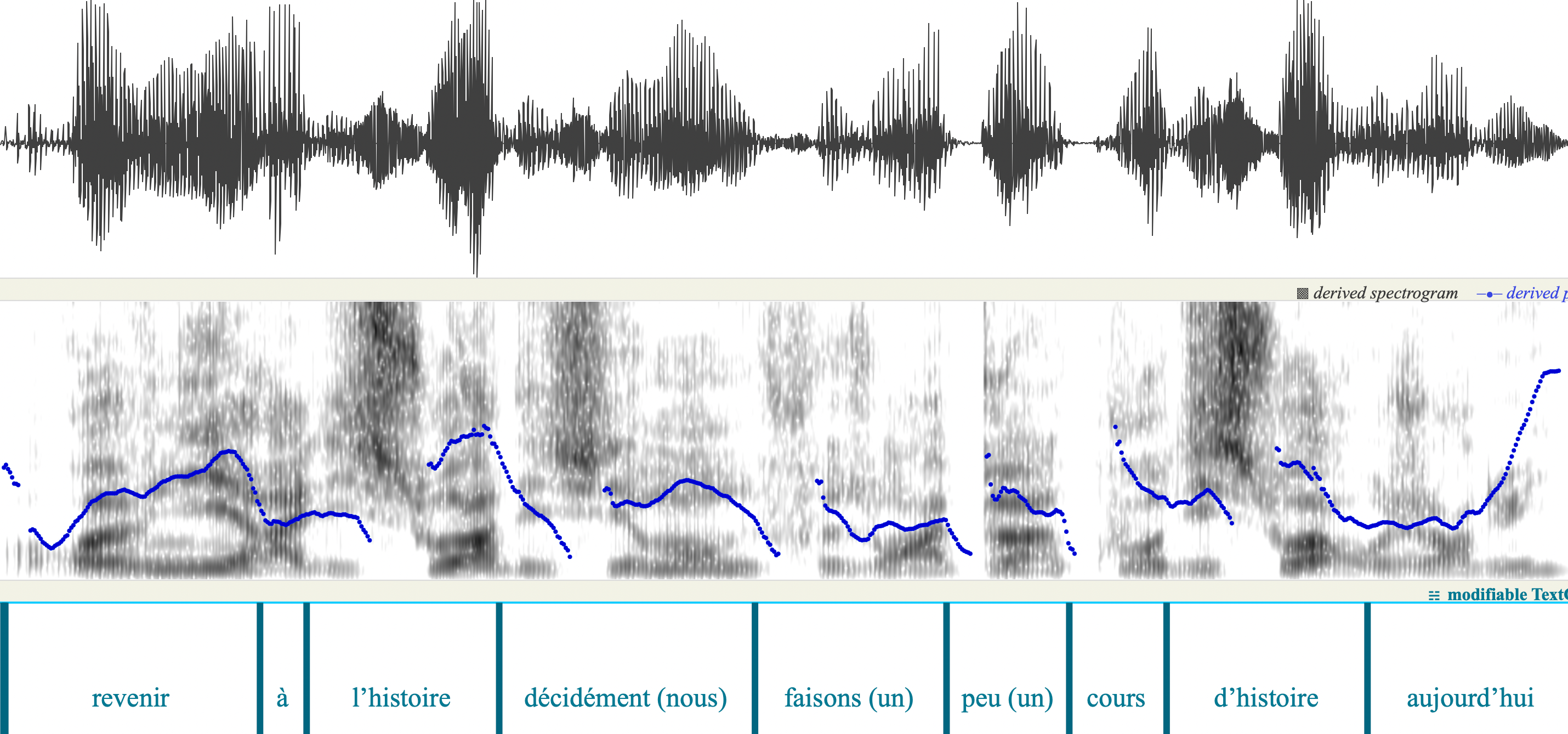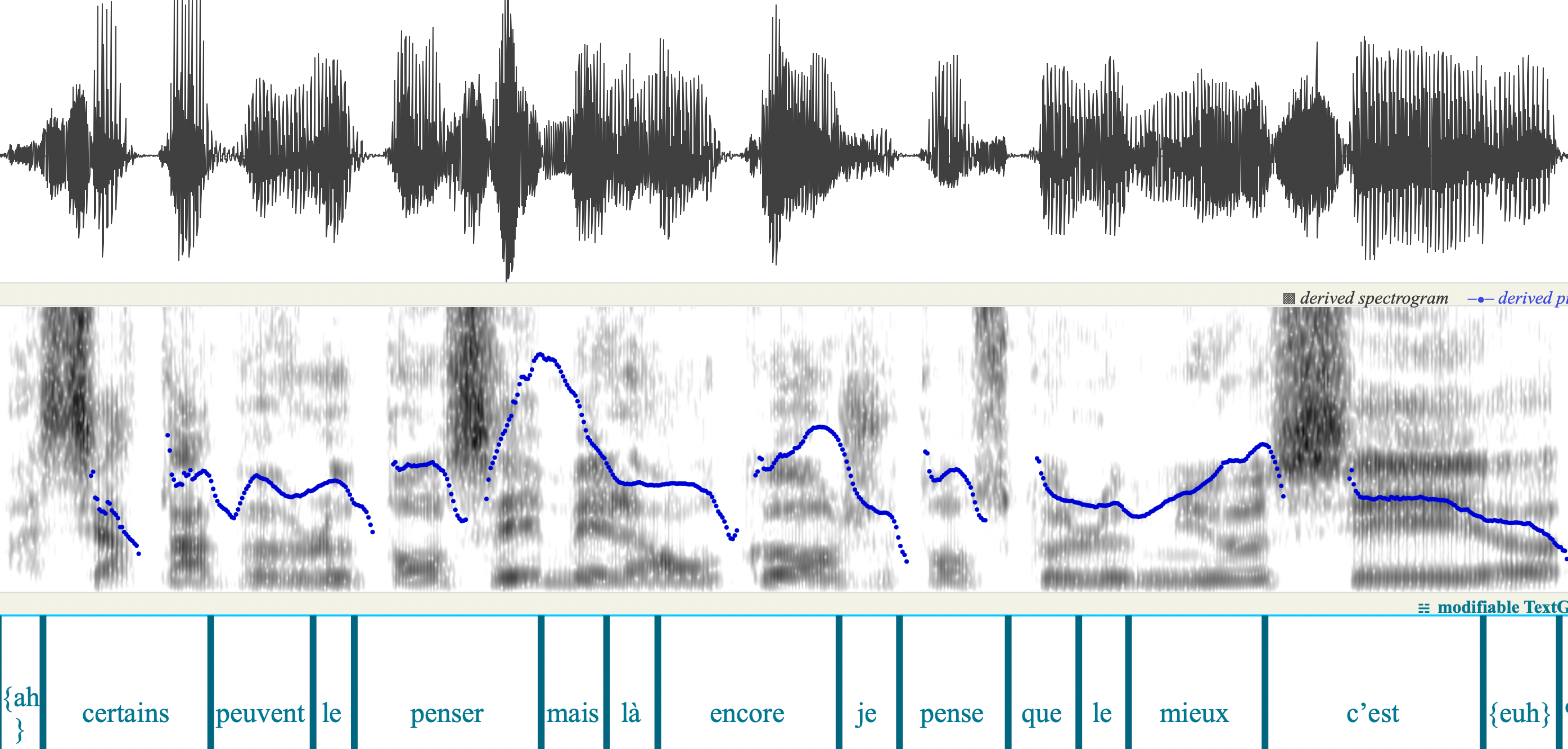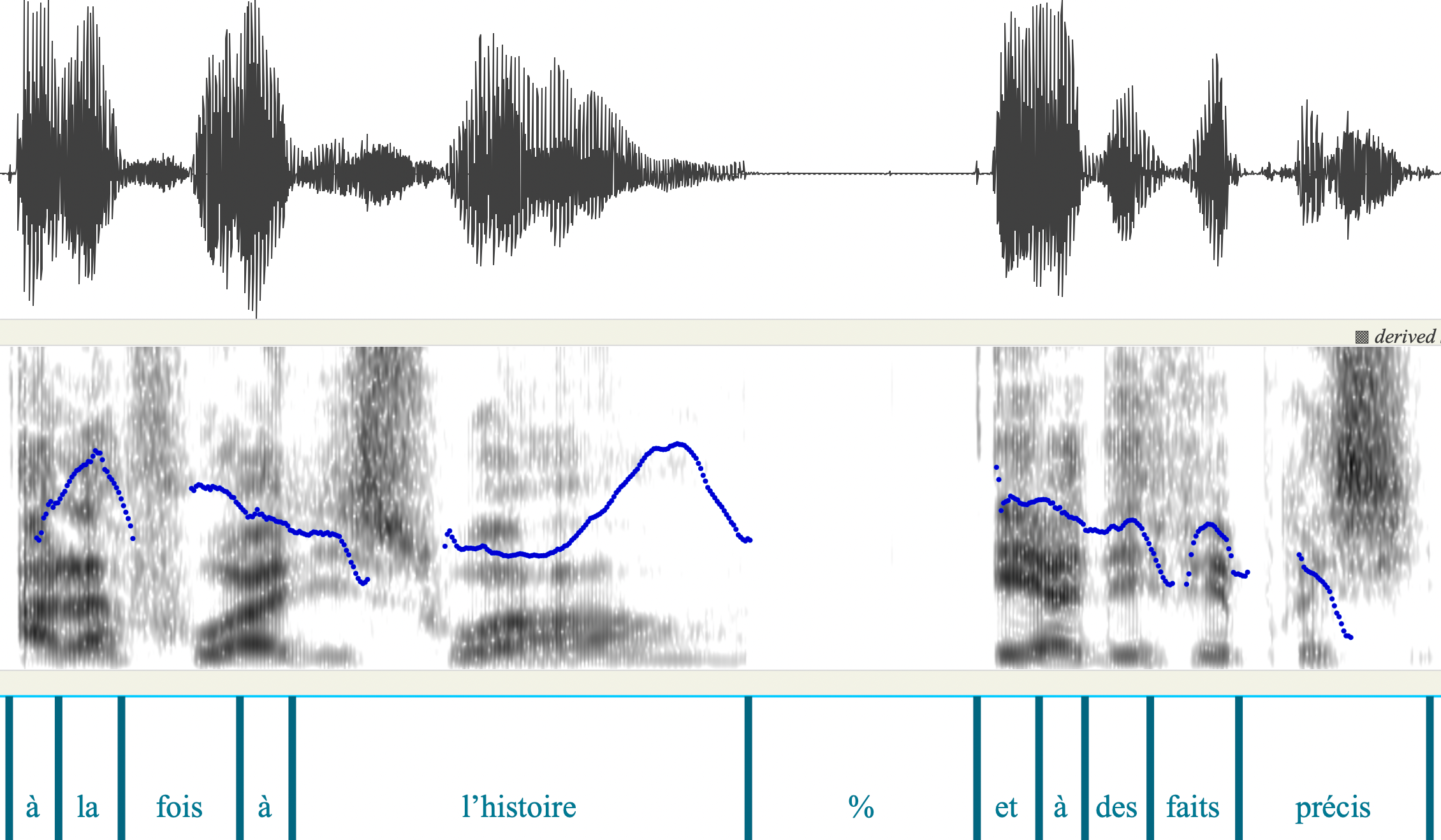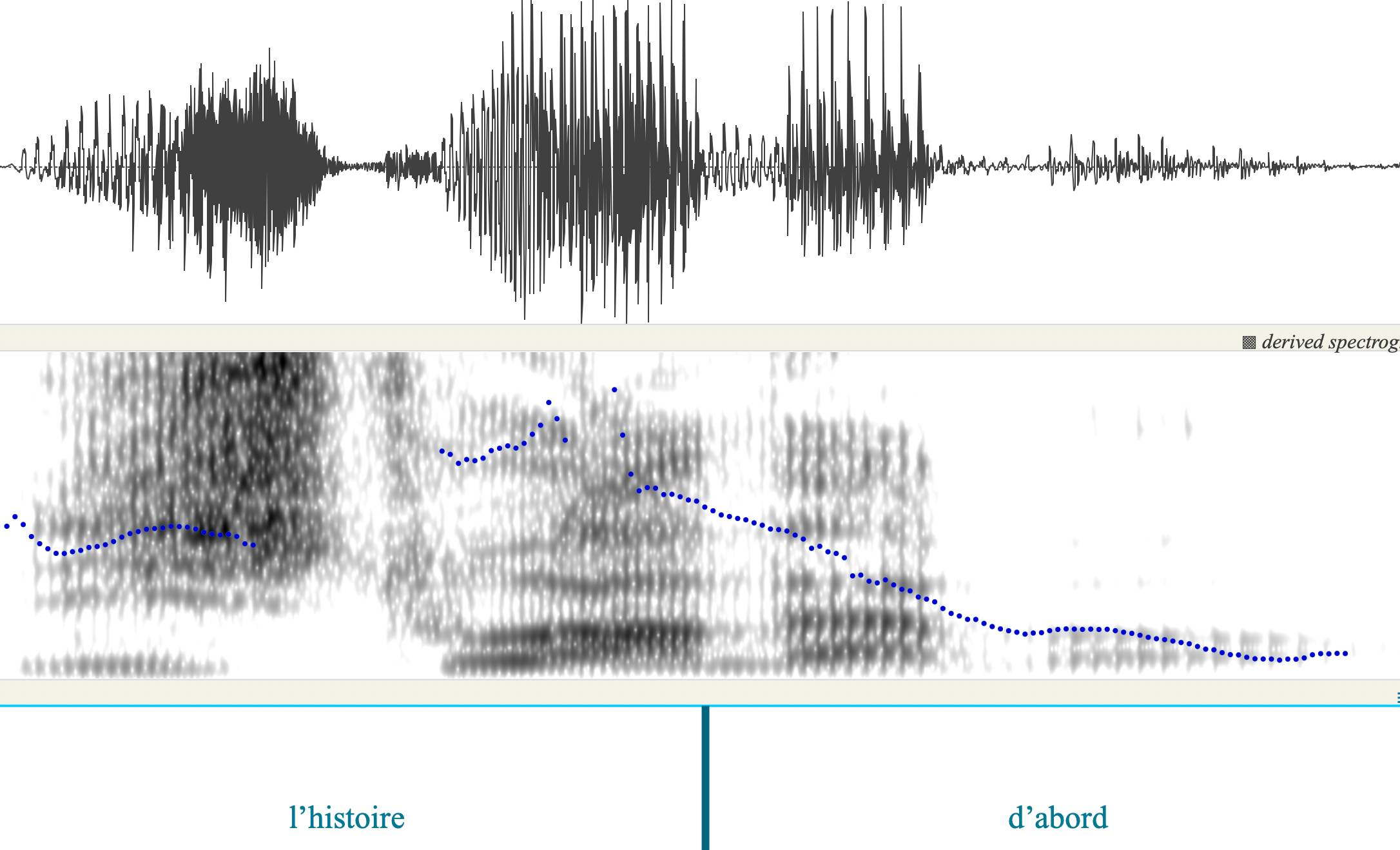LÀ encore…
Language Log 2024-04-14
Continuing my anecdotal exploration of "focus"-like phenomena in French, I dove into a random point in the middle of a random Radio France podcast ("Libre Pensée – L’Europe, l’Union européenne et les élections européennes", 4/14/2024). And within a few seconds, I heard this, where the apparent "focus" on là caught my attention:
Euh mais pour bien comprendre il faut là encore revenir à l'histoire — décidément nous faisons un peu un cours d'histoire aujourd'hui
Your browser does not support the audio element.
(Google translation for those who need it…)
Zeroing in a bit:
Your browser does not support the audio element.
The performance of "LÀ encore" (= "THERE again") in that phrase contributed the title of this post, for an obvious reason. Note that in addition to the higher pitch and louder amplitude, là also has about 100 msec of glottalized onset.
The following phrase lacks any obvious "focus"-like elements, but does illustrate some extreme lenition phenomena — more on French lenition in the future…
Your browser does not support the audio element.
A little bit later in the same podcast, we get
Certains peuvent le penser. Mais là encore, je pense que le mieux c'est euh de se rapporter à la fois à l'histoire et à des faits précis. L'histoire d'abord.
Your browser does not support the audio element.
(The Google Translate version)
Phrase by phrase, again:
Your browser does not support the audio element.
Interestingly, here "là encore" is mostly backgrounded, with "là" short, soft, and low in pitch, while "encore" just has the more-or-less obligatory medial-phrase-final rise.
In the next phrase, à la fois and et have the kind of parallel-marking "focus" we saw before with toutes/tous…
Your browser does not support the audio element.
And in the last phrase, histoire seems to get a strong prosodic "focus":
Your browser does not support the audio element.
Random anecdotes like these are easy to find, and confirm my impression that French speakers make frequent communicative use of the prosodic features — duration, pitch, amplitude — that are associated with (the many meanings of) the term "focus" in languages like English.
That's not to say that French prosodic "focus" is the same as English prosodic "focus". But we'll never learn what's going on if we continue to maintain the fiction that prosodic "focus" doesn't exist in French.
One final note on possible universality. On one hand, these prosodic features are iconic — we are not going to find a language where emphasis, contrast, novelty, etc., are signaled by shorter duration, lower pitch and amplitude, more co-articulation, etc. However, these features are modulations of the basic prosodic systems of the language in question, as we can see clearly in a tone language like Mandarin Chinese, where we have a good idea of what patterns are being modulated. And there do seem to be languages (or varieties) where the uses of such modulations are much more restricted. The dimensions of the relevant typology are mostly unknown — or rather, have been presented in various radically over-simplified and empirically empty ways.
